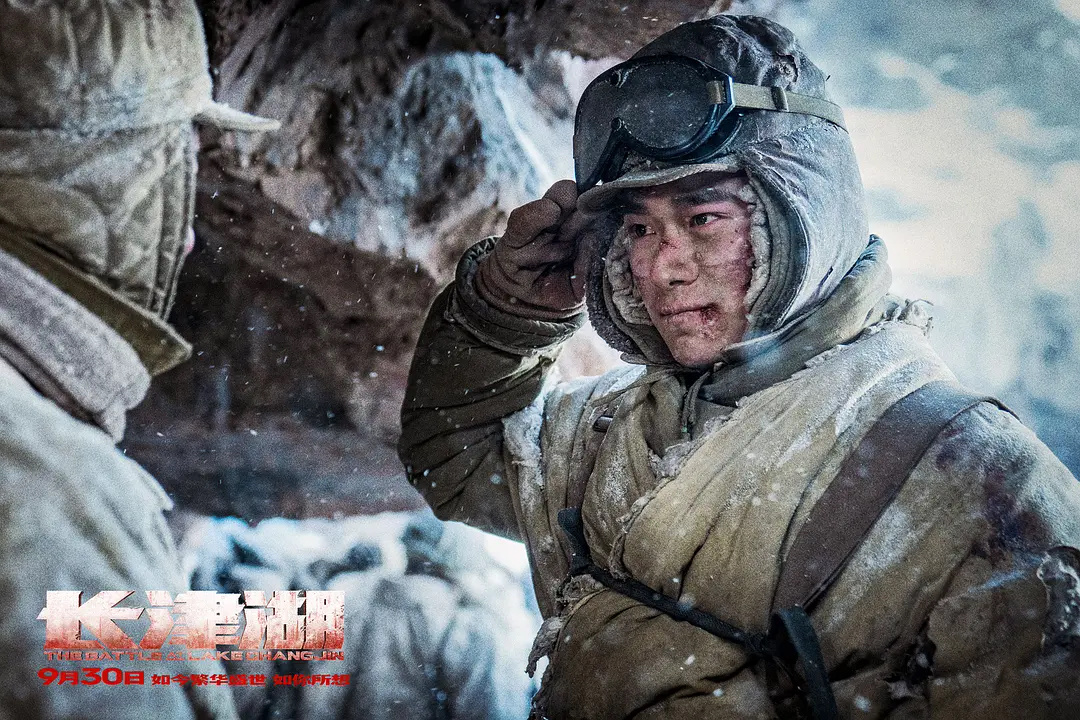Patriotic films dominate China’s National Day holiday as industry faces pileup of unreleased titles
China's National Day holiday is usually a time when studios and filmmakers release big-budget blockbusters that are advertised weeks ahead of their debuts. However, this year, moviegoers in China have to settle for a dull offering of releases dominated by patriotic films and children's cartoons.

The first week of October, a national holiday observed in China to celebrate the founding of the People’s Republic on October 1, 1949, is usually lucrative at the box-office — a time when studios and filmmakers release big-budget blockbusters that are advertised weeks ahead of their debuts.
However, this year, moviegoers in China have to settle for a dull offering of releases dominated by patriotic films and children’s cartoons.
Among the limited options, The Battle at Lake Changjin (长津湖), is the best-performing movie at the box office right now. Co-directed by prominent Chinese and Hong Kong filmmakers Chén Kǎigē 陈凯歌 and Tsui Hark (徐克 Xú Kè), the three-hour war epic has brought in a healthy 2 billion yuan ($310 million) in ticket sales since its release last Thursday, which was the start of the ongoing weeklong holiday, according to ticketing app Maoyan.
On Sunday, the war drama raked in 438 million yuan ($67.9 million), breaking the single-day box office record previously held by the 2017 action blockbuster Wolf Warrior 2 (战狼2). Maoyan predicts that The Battle at Lake Changjin will finish its run with a total of approximately 5 billion yuan ($776 million), which will make it one of China’s highest-grossing movies of all time.
Commissioned by the central government’s propaganda department and produced by a group of major studios, including Bona Film Group and the Chinese military-owned August First Film Studio, the movie tells the real-life story of the 1950 Battle of Chosin Reservoir in the Korean War, where Chinese soldiers fought against American-led United Nations forces in an act known in China as the “War to Resist American Aggression and Aid North Korea.”
Made with a production budget reported to be over $200 million, The Battle at Lake Changjin is believed to be China’s most expensive film ever made. It stars pop idol turned actor Jackson Yee (易洋千玺 Yìyáng Qqiānxǐ) and Wú Jīng 吴京, the 44-year-old Beijing-born actor and director of the blockbuster “Wolf Warrior” war films. Wu also appears in and is credited as one of four co-directors of the patriotic anthology My Country, My Parents (我和我的父辈), which is currently the second-best performing movie at the box office in China.
Aside from the two patriotic titles, the other six choices in Chinese theaters at the moment are mainly animated films made for children.
- Children’s animation Dear Tutu: Operation T-Rex (皮皮鲁与鲁西西之罐头小人) and adventure film Little Canned Men (探探猫人鱼公主) both earned $3.5 million over the weekend for being family crowd-pleasers.
- Another kids’ animation Gold Beak (老鹰抓小鸡), also produced locally in China, came in a notch below with $2.7 million.
An industry insider told (in Chinese) Shenran 深燃, an online news outlet covering business and finance in China, that the lack of diversity in this year’s National Day holiday releases was caused by a confluence of factors, including COVID-related delays in movie productions and studios’ unwillingness to release films in an uncertain time.
The person said that with The Battle at Lake Changjin and My Country, My Parents taking up most of the screenings, other big-budget movies were afraid to go head to head with them. “Cartoons are able to appeal to a different demographic, so their release schedules were not affected,” he said.
A film distributor told Shenran that there are about 300 movies whose releases were put on hold due to the COVID-19 pandemic. But because a string of much-anticipated titles failed to meet financial expectations this year, studios have grown more skittish about releasing major films.






